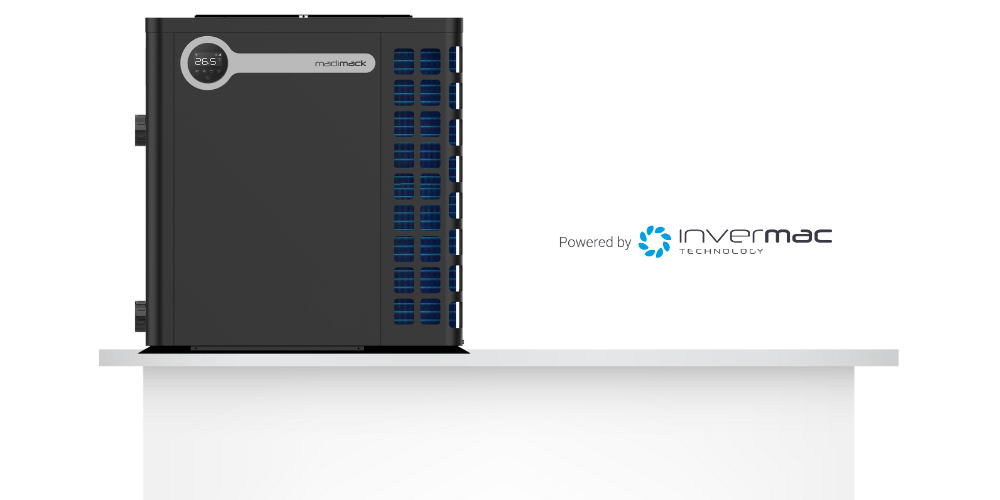Discover the key factors to consider when selecting a pool heat pump for your inground pool.
Understanding the Benefits of Pool Heat Pumps
Pool heat pumps are an efficient and cost-effective way to heat your inground pool. They work by extracting heat from the surrounding air and transferring it to the pool water, effectively raising its temperature. One of the main benefits of pool heat pumps is their ability to maintain a consistent water temperature, allowing you to enjoy your pool year-round. Additionally, heat pumps are environmentally friendly, as they use a minimal amount of electricity to operate.
Another advantage of pool heat pumps is their versatility. They can be used in various climates and are suitable for both small and large inground pools. Whether you live in a warm or cold region, a pool heat pump can help you extend your swimming season and make the most out of your pool.
Furthermore, pool heat pumps are easy to install and require minimal maintenance. They are designed to be durable and long-lasting, providing you with reliable heating for many years. With their quiet operation and energy efficiency, pool heat pumps offer a comfortable and economical heating solution for your inground pool.
Factors to Consider When Choosing a Pool Heat Pump
When selecting a pool heat pump for your inground pool, there are several factors to consider. The first is the size of your pool. It's essential to choose a heat pump with the appropriate heating capacity to ensure efficient and effective heating. A heat pump that is too small may struggle to heat your pool, while one that is too large may consume unnecessary energy.
Another factor to consider is the climate in which you live. If you reside in a colder region, you may require a more powerful heat pump to compensate for lower air temperatures. On the other hand, if you live in a warmer area, a less powerful heat pump may be sufficient.
Energy efficiency is also an important consideration. Look for a pool heat pump with a high coefficient of performance (COP), as this indicates its energy efficiency. A higher COP means the heat pump can produce more heat output for the amount of electricity it consumes.
Additionally, consider the noise level of the heat pump. Some models are designed to operate quietly, which can be beneficial if your pool is located close to your home or other living spaces.
Finally, warranty options and additional features should also be taken into account. Look for a heat pump that offers a comprehensive warranty to protect your investment. Consider features such as digital controls, programmable timers, and compatibility with smart home systems, which can enhance the convenience and functionality of your pool heat pump.
Determining the Correct Size for Your Pool
Determining the correct size of a pool heat pump for your inground pool is crucial for efficient heating. To calculate the required heating capacity, you need to consider the volume of your pool, the desired temperature increase, and the heat loss rate.
The volume of your pool can be calculated by multiplying the length, width, and average depth of your pool. The desired temperature increase is the difference between the current water temperature and the desired water temperature. The heat loss rate depends on factors such as the pool's insulation, exposure to wind, and average air temperature.
Once you have these values, you can use an online calculator or consult a pool professional to determine the appropriate heating capacity for your pool. It's important to choose a heat pump that can meet the demands of your pool size to ensure efficient and effective heating.
Energy Efficiency and Operating Costs
Energy efficiency is an important consideration when selecting a pool heat pump for your inground pool. A higher energy efficiency means lower operating costs and reduced environmental impact. Look for a heat pump with a high coefficient of performance (COP), as this indicates its energy efficiency.
Operating costs depend on factors such as the heat pump's COP, the size of your pool, the desired water temperature, and the local electricity rates. While a more energy-efficient heat pump may have a higher upfront cost, it can save you money in the long run by reducing your energy consumption.
To estimate the operating costs, you can use an online calculator or consult a pool professional. They can provide you with an estimate based on your specific pool size, climate, and usage patterns. This information can help you make an informed decision and choose a pool heat pump that meets your heating needs while keeping operating costs in check.
Additional Features and Warranty Options
When choosing a pool heat pump for your inground pool, consider the additional features and warranty options offered by different models. Some heat pumps come with advanced features such as digital controls, programmable timers, and compatibility with smart home systems. These features can enhance the convenience and functionality of your pool heat pump, allowing you to easily control and monitor its operation.
Warranty options are also important to protect your investment. Look for a heat pump that offers a comprehensive warranty, covering both parts and labor. A longer warranty period can provide you with peace of mind and ensure that any potential issues with the heat pump will be covered.
Additionally, consider the reputation and customer reviews of the heat pump manufacturer. Choose a reputable brand with positive feedback from customers to ensure the quality and reliability of the heat pump you select for your inground pool.

